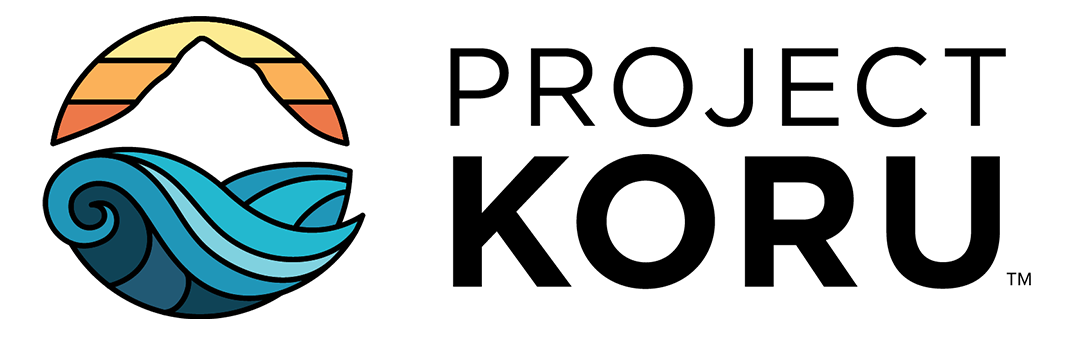Guest Blog: Community Amidst a Pandemic
Ximena Giesemann is a graduate student at Claremont Graduate University pursuing a PhD in Positive Development Psychology, and also Project Koru’s program intern. A cancer survivor herself, she hopes to one day use what she has learned about program development, evaluation, and Positive Psychology to create and evaluate programs for adolescent and young adult cancer survivors. Ximena is an avid outdoorswoman, and has frequently been spotted carrying her cat on her shoulders through the airports of her many travels. We are excited to announce Ximena will be a regular guest blogger!
Since the first moment I became involved with Project Koru, I have felt the overwhelming sense of the close-knit, authentic community that runs deep through the organization. Being an AYA cancer survivor myself, I know just how transformative and meaningful having a community can be -- and I also know what it feels like to not have it. When I was diagnosed, I remember feeling absolutely shocked, terrified, and alone. While I had so much support from my loved ones around me, I still felt misunderstood and isolated being the only person my age with cancer that I knew. I distinctly remember feeling as though the world as I knew it had been completely flipped upside down, yet somehow, everything around me still went on as if it were any average day. While still physically close, I felt leagues away from my friends and family as they continued to go to work and school, and talk about non-cancer things. Meanwhile, all I could think about was cancer. Cancer had derailed my future plans and forced me to truly confront my own mortality for the first time in my life, and this was terrifying. I kept this largely to myself as I didn’t know how to broach the topic with my peers and didn’t want to completely freak my parents out. I wished so badly just to swap stories, fears, and experiences with someone my age that also had cancer.
Unfortunately, these feelings of isolation are not uncommon among AYA cancer patients and survivors--this is certainly not something that only I have experienced. In the past, both hospitals and programs have been geared towards helping pediatric and older adults with cancer, consequently leaving the psychological, social, and other developmentally specific needs of AYA cancer patients and survivors largely left unmet (1,2). When these needs are unmet, AYAs often face feelings of social isolation and disconnection (3). This is why community is important for everyone, especially young adult cancer survivors (4). Communities of other young people who also had cancer often act as an incredibly helpful and important source of support (5). I know that for me, meeting other AYA cancer patients and survivors has been nothing short of life-changing. They have truly been some of the most authentic and inspiring people that I have ever met.
In the midst of this pandemic and now that we are entering into the colder months (which sadly means less physically-distant outdoor hangouts), community is especially important. Project Koru is one place where AYA cancer patients and survivors can find a sense of community through its various programs and events. Although camps have been temporarily placed on hold, Project Koru is offering virtual programs as a way to bring people together. To learn more about these programs or get involved with our community, please email: programs@projectkoru.org.
Finding Community at Project Koru
Programs for the AYA Community: programs@projectkoru.org
Project Koru ‘Ohana: Camp Koru Facebook Page
Other Resources for AYA Cancer Patients and Survivors
I hope to meet/see you at some of these events and am looking forward to these next few months interning :)!
With gratitude,
Ximena
Sources:
Williams, K. (2013). Adolescent and young adult oncology. Clinical Journal of Oncology Nursing, 17(3), 292-296.
D’Agostino, N., Penney, A., & Zebrack, B. (2011). Providing developmentally appropriate psychosocial care to adolescent and young adult cancer survivors. Cancer, 117(S10), 2329-2334.
Kent, E., Smith, A., Keegan, T., Lynch, C., Wu, X., & Hamilton, A. et al. (2013). Talking About Cancer and Meeting Peer Survivors: Social Information Needs of Adolescents and Young Adults Diagnosed with Cancer. Journal Of Adolescent And Young Adult Oncology, 2(2), 44-52.
Breuer, N., Sender, A., Daneck, L., Mentschke, L., Leuteritz, K., & Friedrich, M. et al. (2017). How do young adults with cancer perceive social support? A qualitative study. Journal Of Psychosocial Oncology, 35(3), 292-308. doi: 10.1080/07347332.2017.1289290
Zebrack, B., & Isaacson, S. (2012). Psychosocial Care of Adolescent and Young Adult Patients With Cancer and Survivors. Journal Of Clinical Oncology, 30(11), 1221-1226.
